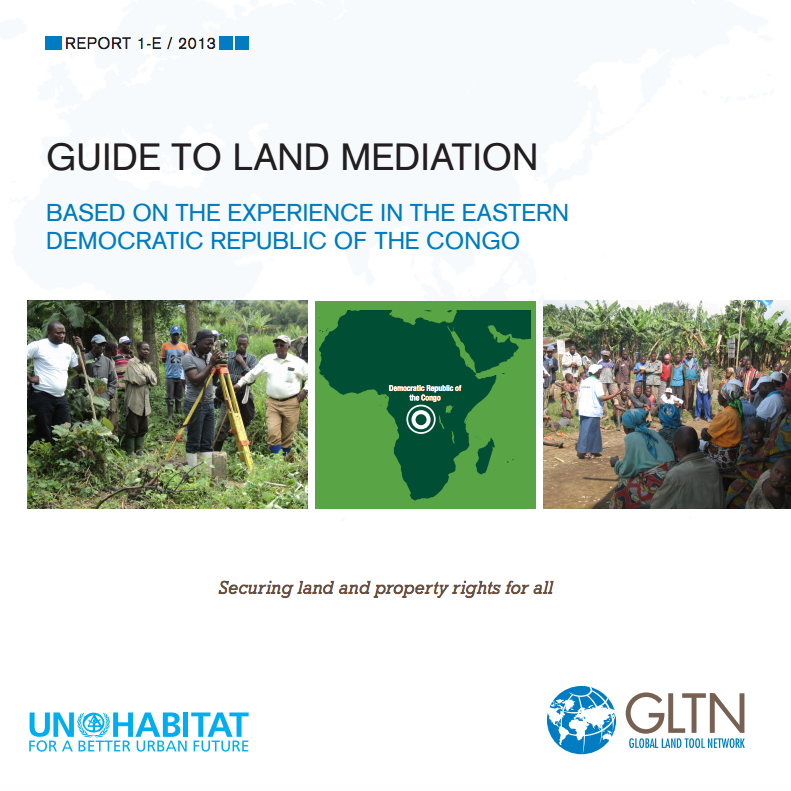Guide to Land Mediation: Based on the experience in the Eastern Democratic Republic of the Congo
Resource information
Date of publication
December 2012
Resource Language
ISBN / Resource ID
Guide to L2013
Copyright details
UN-Habitat/GLTN
The Guide to Land Mediation mainly draws its inspiration from practical experience on the ground of the land program conducted by UN-Habitat in eastern Democratic Republic of the Congo, especially in North Kivu, South Kivu and Ituri. It refers, in some places, to other countries experiences in post-conflict situations. This guide offers practical steps and tools used during the land mediation process. The publication highlights, not only the role and responsibilities of mediation stakeholders and 'beneficiaries', but also principles and foundations of a good mediation


